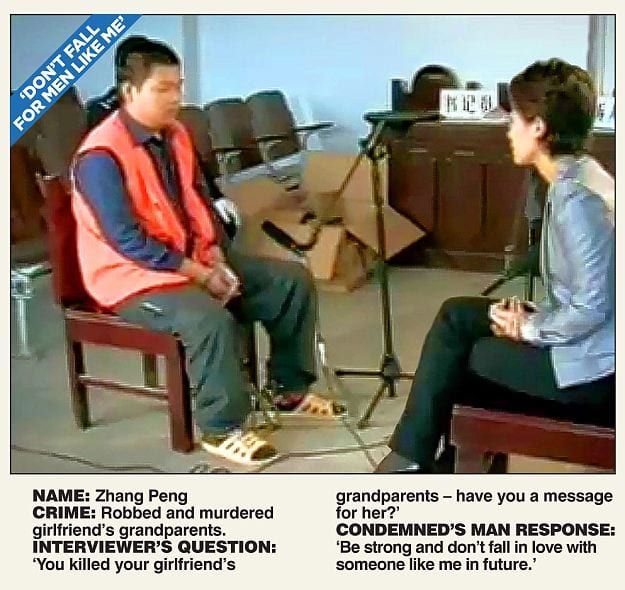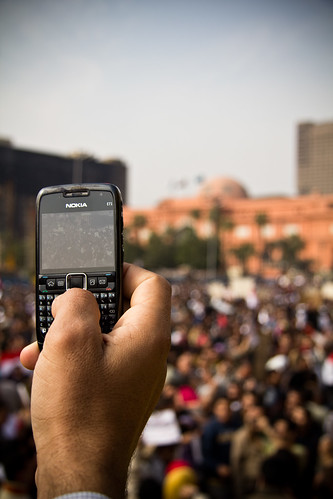Dan Sreebny (@pd_dan) has had a couple of interesting tweets lately about various cultural diplomacy programs by the State Department featuring Hip Hop music and dance. In Egypt, the U.S. Embassy and the Brooklyn Academy of Music teamed up to bring the Rennie Harris Puremovement Dance Company (RHPM) to perform as part of a Middle Eastern tour. In Lebanon, Chen Lo and the Liberation Family performed as part of State’s Rhythm Road program, which sends American bands around the world.You can get a sense of Chen Lo’s group from this concert in Algiers:
[youtube http://www.youtube.com/watch?v=ef5Oirc4T10&w=420&h=315]
These efforts are part of a long tradition of using music as an integral part of U.S. public diplomacy efforts abroad. This blog’s name is an homage to those programs, which in their earliest days featured “Jazz Ambassadors” like Dave Brubeck and Louis Armstrong. A major underlying rational for these programs is that music and other arts are seen as being less overtly political than traditional diplomacy and thus able to bridge gaps created by policy differences between the U.S. and other countries, something USC’s Phil Seib blogged about last week.
Hip Hop is in many ways ideally suited to these programs because of its wide appeal to young people (and some of us older folks) around the world.
That said, as Seib intimates, it’s obviously a bit ridiculous to pretend that art, music very much included, is apolitical. Furthermore, from the earliest days of post-war American public diplomacy the art and artists State has chosen to export through these programs have often been chosen expressly because of their political value. Much has been written, for instance, about the debates in U.S. policy circles about which art to include in the famous American Exhibition in Moscow in 1959 (famous for the Kitchen Debate). And even the Jazz Messengers were seen by President Eisenhower and others as helping to counter America’s well-deserved bad reputation regarding race, while at the same time potentially opening up politicized critiques of American hypocrisy.
Hip Hop, of course, is also no stranger to political firestorms, and the best of it — like the best of virtually all artistic genres and mediums — is often overtly political, especially about culture. Whether it’s Public Enemy’s “Fight the Power,” NWA’s “F*** tha Police,” or Jay Z’s “99 Problems,” (all links very much NSFW) Hip Hop (and Rap) frequently touch on important themes of racism, police brutality, and economic disenfranchisement.
Contrary to the purported apolitical intent of many cultural diplomacy programs involving the arts, I think their value lies precisely in their manifest and latent political content. Sure, State isn’t about to send Nas on a world tour (though that would be awesome on many levels…), but there is still a great value in not being afraid of a musical genre just because it has a negative stereotype among certain circles in the U.S., including many political circles.
Yet these same domestic political issues force the State Department to walk a tightrope with these programs: They can’t promote even remotely controversial artists lest they raise the hackles of members of Congress who control the purse strings for such programs. This is especially difficult for public diplomacy programs because, for many reasons including their long-term effects horizon and measurement issues, it is often difficult to “prove” their worth empirically to legislators looking for reasons to slash budgets. Programs tainted with being “politicized” are especially likely to receive scrutiny.
Yet I’d argue that perhaps the greatest value of the Jazz Messengers was precisely that they sparked conversations about America’s race problem, something many Americans would prefer to ignore, while at the same time celebrating not only American culture generally, but African American culture specifically. In that case, there was also an added benefit of subtly demonstrating American values by opening up such a discussion of race, something that shows, I think, the difference between good public diplomacy and propaganda.
All of this will be front and center, by the way, at next Tuesday’s IPDGC conference “Hip Hop Diplomacy: Connecting Through Culture,” from 2-5 at the State Room at the Elliott School for International Affairs on the GWU campus. RSVP now because seats are limited!










